These 10 small and medium businesses in India earn in crores by just selling online
India is revolutionising to become a digital economy, and the pillars of its strength lies in the ecommerce industry. Here are 10 small and medium businesses in India that are earning in crores by selling on the internet.

In this modern world, where people eat, sleep, and breathe through the internet, their shopping needs also lie at the helm of this network of networks.
While there is no other pleasure than scrolling through the screen, seeing the latest collection by the brands at one’s comfort, the ecommerce industry with its great offerings and deals leaves the customers spoilt for choice.
The ecommerce industry is booming and is expected to show an annual growth rate (CAGR 2019-2024) of 17.1 percent, resulting in a market volume of $ 24,470 million by 2024, and contributing to this industry are some of the best small and medium businesses in India, that are earning revenue worth crores by just selling online.
The Fashion Factory
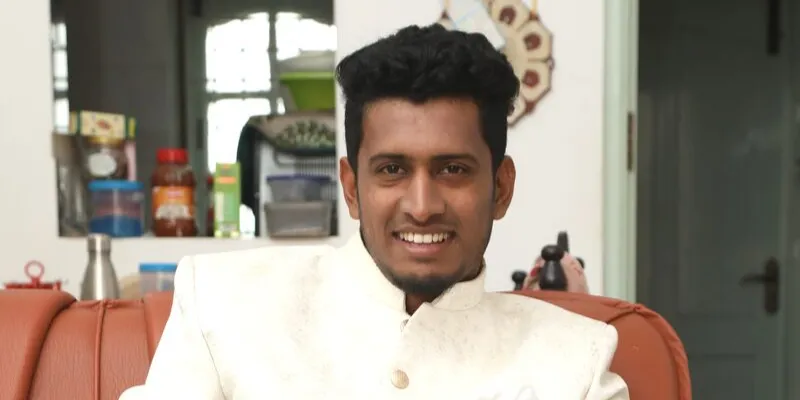
Zubair Rahman, Founder, The Fashion Factory
In 2014, Zubair Rahman worked as a CCTV operator in Tirupur, Tamil Nadu. The 21-year-old engineer went to offices and installed CCTVs on their premises. But his heart was elsewhere. Zubair was set on starting his own business.
One day, he got a request to instal CCTVs in the office of an ecommerce company, where he spoke to the manager, who told him how the company was making money by sourcing and selling items online.
The idea appealed to Zubair as he didn’t have to invest heavily in manufacturing.
Taking the plunge, Zubair realised, textiles were the best products he could source from Tirupur, as the city is known as the ‘knitwear capital of India’, as it has a robust textile manufacturing ecosystem, which accounts for 90 percent of India’s cotton knitwear exports.
In 2015, he invested Rs 10,000 to start The Fashion Factory from his home.
In the initial days, he started listing on Flipkart, and Amazon. He found maximum traction in selling kids apparel in combo packs of five or six units. But, this meant he sold each pack at rates between Rs 550 and Rs 880, and the margins he made on each sale were relatively small.
“Selling in combo packs made individual clothing items cheaper than selling them separately. I was seeing less profit per sale, but my low per-unit prices attracted a lot of attention, and my number of orders quickly shot up,” he explains.
The growing number of orders made him decide he would focus on larger volumes to bring in more profits. As the number of orders swelled, he moved out of the home set up and invested Rs 30,000 in a manufacturing unit.
A numbers game, Zubair’s strategy worked so well that The Fashion Factory now receives 200 to 300 orders per day. By fulfilling these orders, Zubair’s company rakes in around Rs 50 lakh revenue each month, he claims. “We also signed an exclusive deal to sell to Amazon. We see total sales of 20 to 30 lakh units each month,” he adds.
The Fashion Factory sees yearly revenue of Rs 6.5 crore, and is targeting Rs 12 crore in the next year, Zubair says.
Indian Beautiful Art
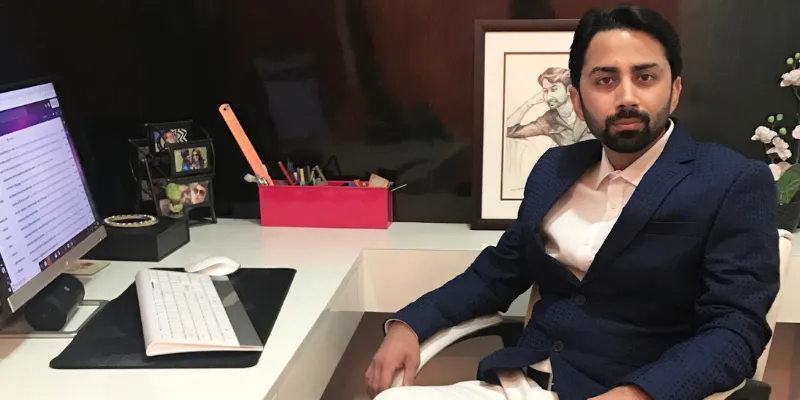
Nitin Kapoor, Co-founder, Indian Beautiful Art
According to Invest India, India is among the world's largest producers of textiles and garments. But, this also means there is plenty of wastage from the apparel industry, which guzzles precious resources like water, in a country starving of it.
This did not sit well with Nitin Kapoor (32) and Amit Gupta (34), Founders of the ecommerce platform, Indian Beautiful Art. They decided to integrate the ‘Just in Time’ (JIT) inventory management method into their venture.
The JIT model is used by several companies around the world as concerns surrounding wastage and efficiency sprang up to relook the existing inventory and stock-keeping systems. And, Indian Beautiful Art has embraced it to do their bit to save water, electricity, and other scarce resources, and cause as little impact on the planet as possible.
Indian Beautiful Art is one of the largest online sellers in the ecommerce industry for Indian products, globally. The company was co-founded by two entrepreneurs in New Delhi in 2009, with a bootstrapped capital of Rs 10,000.
The founders sourced products from manufacturers across India in Khambat, Ahemdabad, Jaipur, Meerut, Kolkata, Khurja, Moradabad, Ludhiana, Amritsar, Mumbai, New Delhi, Hyderabad, and Lucknow, to sell in other countries, including the US and the UK.
At present, the company follows the JIT business model for its garments, home furnishing, and paper and printing categories.
The company also deals in jewellery, health and beauty, bed and bath, automobile accessories, pet accessories, and other categories sourced from about 1,000 small and medium manufacturers in India.
The company delivers around 31,000 orders per month to its customers located across the US, the UK, Southeast Asia, Germany, Australia, South Africa, and more, and records an annual turnover of Rs 30 crore.
Story@Home

Ankit Rungta, Founder, Story@Home
Home furnishing is fast becoming a hot-selling category on popular ecommerce platforms such as Amazon, Flipkart, and Snapdeal, after electronics and fashion. This rise in online shopping could undermine the effectiveness of physical stores for many businesses.
Story@Home is one such company. Founded by Ankit Rungta in 2012 in Vadodara, Gujarat, Story@Home was self-funded and incorporated as a family-owned business. With the ecommerce boom, the business grew, and 34-year-old Rungta brought in his father, Sohan Rungta to grow different verticals.
“We launched intending to make high-quality home furnishings reach all over India. During the initial stages, we had physical stores and we operated with different retail partners to sell our goods. Like all businesses, we had various challenges related to inventory and supply chain efficiency, which we were trying to solve effectively,” says Rungta.
“Then came the ecommerce boom and we were among the first few brands that partnered with Flipkart, Amazon, SnapDeal, and many more. We upgraded and switched from physical stores to online channels for sales.”
With over 10 lakh new customers added every year, it had a turnover of close to Rs 65 crore in 2018. This year, the company targets revenue of Rs 100 crore.
Lavos clothing
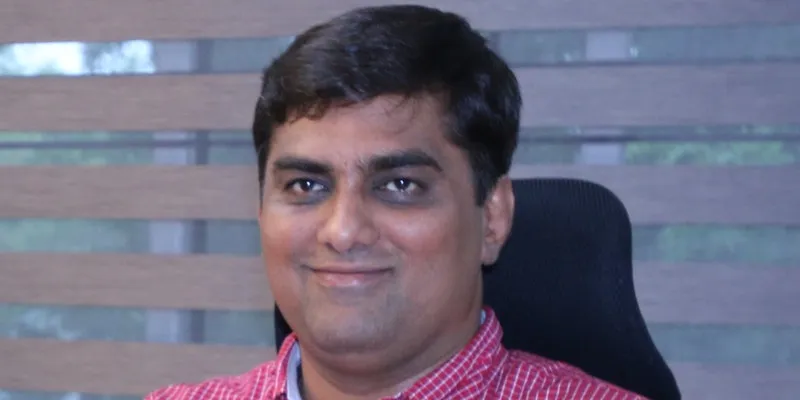
Vijaya Raghavan, Founder and CEO, BS Apparels and Lavos Performance
Now a key trend in the Indian fashion industry, athleisure combines casual style with sporting and urban lifestyles.
This local demand for athleisure didn’t exist, when Tirupur-based entrepreneur Vijaya Raghavan started textile and knitting company, BS Apparels in 1994. He exported fabric and clothes to the US, where the demand for athleisure was growing.
He found Tirupur was a great place to be in the textile business. However, Vijaya wanted to use his bamboo-organic blend to manufacture products for the Indian customer. But, the fact remained that the demand for athleisure had still not picked up in India.
This made him think, why not use the same bamboo-organic cotton blend to make clothing items under a different segment – one that was in demand in India?
And, he didn’t need to look beyond innerwear. He saw the industry for innerwear was growing – evidenced by the entry of several large and international brands in the Indian market.
Armed with his concept for comfortable innerwear, Vijaya started Lavos Performance in 2010. Vijaya didn’t raise any funds. Instead, he diverted money from the parent company, BS Apparel to launch the brand, and utilised its infrastructure.
Lavos made boxers, stretch and sports briefs, vests, T-shirts, and polos for men, and started making innerwear for women to be worn during periods, maternity, and while engaging in sports activities as well. At present, the women’s range also includes sports bras, bikinis, T-shirts, shorts, yoga pants, and more.
“We sell online on Amazon, Flipkart, Zivame, and very soon, on Myntra. But, we don’t give any big discounts, since we sell items at par with their production costs,” he says, adding, “only sometimes, we give 10 to 30 percent off on seasonal products.”
Vijaya claims that the company makes Rs 2 crore a year, adding that the brand is now breaking even and is present in offline spaces as well.
Potful biryani
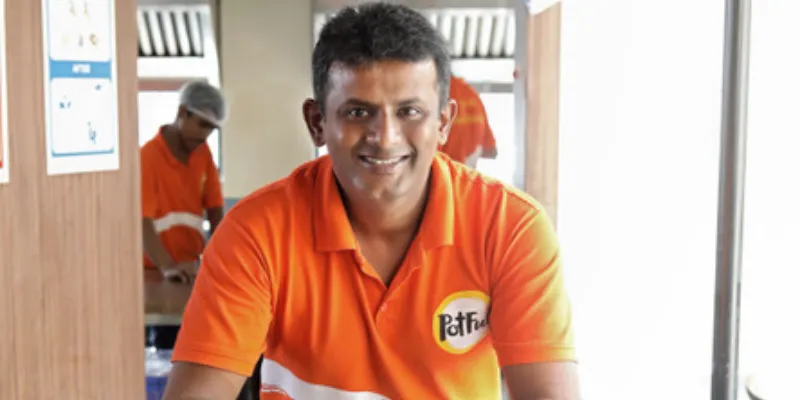
Lokesh Krishnan, Founder, Potful
Once the preserve of the elite and royals, biryani has become more egalitarian in recent times, with each region in the country boasting its unique twist to the dish. But, along with the proliferation rises knockoffs and dilution of the original, rich taste.
Lokesh Krishnan loved biryani but was worried about the fact that people did not get to taste the authentic version of the dish. Hence, he founded Potful India Pvt Ltd, a biryani company in 2017 in Bengaluru, to offer biryani from across the country on a single platform.
“Biryani has become a commodity, and most of the restaurants do some form of biryani. We believe, authentic biryani options are very few in a city, and the flavours offered are also limited to the region, like Hyderabadi biryani in the South, Awadhi biryani in the North, Calcutta biryani in the East, etc.,” Lokesh said.
He founded Potful with a bootstrapped capital of Rs 2 crore, intending to clock Rs 16 crore turnover.
Lokesh says the brand ‘traditionally’ makes biryani in an earthen clay pot and delivers to the customers in the same, delighting them with the most authentic form of dum cooked biryani.
Talking about hitting the online space, Lokesh says, it is convenient for people to order online and sit back waiting for the food to arrive. Online ordering for biryani is increasing day-by-day, and so the team thought of making Potful, a delivery-only platform.
With the same business model, Potful has delighted more than one lakh customers. At present, it has four cloud kitchens and a central kitchen in south Bengaluru, and currently, it is expanding its footprint.
XYXX

Yogesh Kabra, Founder of XYXX Apparels Pvt Ltd
To all the men out there looking for everyday comfort and unconventional variety in their innerwear, only to find boring and expensive options, XYXX has launched its men’s innerwear brand, which includes a wide range of stylish products at a price between Rs 199 and Rs 399.
Founded by Yogesh Kabra in Surat, Gujarat, in 2017, XYXX is a premium men’s innerwear and loungewear brand, with a vision to change the innerwear culture in India.
The brand designs and manufactures comfortable innerwear for men ranging from trunks, boxers, briefs, knitted Pyjamas, vests, and t-shirts.
Yogesh says, one day he went shopping for innerwear but did not find any good collection. The fabric quality for all the brands was common, and there was nothing that could fit his choices. Thus, the idea struck his mind, and he decided to start his venture of men’s innerwear.
The company was founded with a capital of Rs 50 lakh and is bootstrapped. Currently, XYXX employs 40 people in its office in Surat.
As innerwear is driven by quality and comfort, XYXX uses LenzingMicroModal fabric for its products. It is the premium underwear fabric across the world, which is extracted out of the pulp of the beechwood tree in Austria.
After its launch, XYXX listed itself on Amazon for its sales. Competing against huge brands in the Indian innerwear industry, XYXX, with its USP, started generating online sales from the beginning thus, increasing it to 50 percent every month, raking Rs 1 crore in revenue.
XYXX has its distribution channels in Maharashtra, Madhya Pradesh, Gujarat, and Chhattisgarh. To date, the brand has attracted three lakh customers, generating a turnover of Rs 12 crore annually, and expects to double in the coming months.
eCraftIndia.com

Rahul Jain, Founder & Business Head, eCraftIndia
Born and raised in Jaipur, Rajasthan, local handicrafts always mesmerised Rahul Jain. Be it the fascinating katputli or puppets, or the embellished mochdi footwear, or the colourful bangles, the handicrafts from Rajasthan are sought after across the world. But, when Rahul (31), stepped in a mall in Mumbai — where he was working after completing his engineering degree — to pick up a gift for a friend, he was shocked at how exorbitantly the Rajasthan handicrafts were priced.
That experience spurred Rahul to open his own ecommerce company a year later to collaborate with artisans and craftsmen and sell affordable products by cutting out the middlemen.
In 2014, Rahul along with Ankit Agarwal and Pawan Goyal co-founded eCraftIndia.com with a bootstrapped capital of Rs 20,000.
The founders aim to bridge the gap between art connoisseurs and artisans and organise the industry, thereby giving impetus to the growth opportunities for trade with affordable artwork. The burning desire of the company is to create a global reach for Indian art and handicrafts, besides contributing to skill development and encouraging these craftsmen.
From home decor to furnishings, furniture, paintings, kitchenware, and gifts, the portal houses over 8,000 unique products.
What started as a small online handicraft store in 2014, where the company sold wooden elephant showpieces costing about Rs 250, eCraftIndia.com, at present, is one of the largest handicraft e-stores in India and clocks Rs 12 crore turnover.
Rubans Accessories

Chinu Kala, founder, Rubans Accessories
Chinu Kala was 15-years-old when she fled her home in Mumbai because of family issues. She explored a variety of jobs for over eight years to ensure she could manage on her own. In 2004, she got married in Bengaluru. With a lot of push from her friends, she participated in Gladrags Mrs India Pageant, 2008, where she reached the finals. She then entered the modelling industry, following which, she began her entrepreneurial journey with Fonte Corporate Solutions, which specialises in corporate merchandising.
While in the corporate merchandising sector, Chinu realised that despite the Indian jewellery market being vast, there is a huge gap in the industry, with no unique designs to meet the consumer demands.
Hence, she decided to start Rubans Accessories in 2014, with a bootstrapped capital of Rs 3 lakh in a 70 sqft kiosk in Phoenix Mall, Bengaluru.
Chinu opened five exclusive stores across Bengaluru, Hyderabad, and Kochi. However, soon she realised that her customer base was dwindling. Although sales didn’t drop, the footfall at her stores was rapidly declining.
“Almost 60 percent of my customers who used to visit my stores switched to the online mode of shopping, saying that it’s more convenient and saves them the hassle of stepping out of the house. And after experiencing this, I had to take an immediate step of moving online.”
Chinu took the hard decision to shut all her offline stores and switching to the online mode of selling. She listed herself on various ecommerce portals like Flipkart, Myntra, and Jabong, and thus, revived her customer base.
Currently, the brand receives 1,000 orders daily and also sells its jewellery to the US and the UK through its platform. In 2016-17, the brand clocked a revenue of Rs 56 lakh. In FY19, the brand’s revenue grew 114 percent, closing the year with Rs 7.5 crore revenue.
Rivir shoes
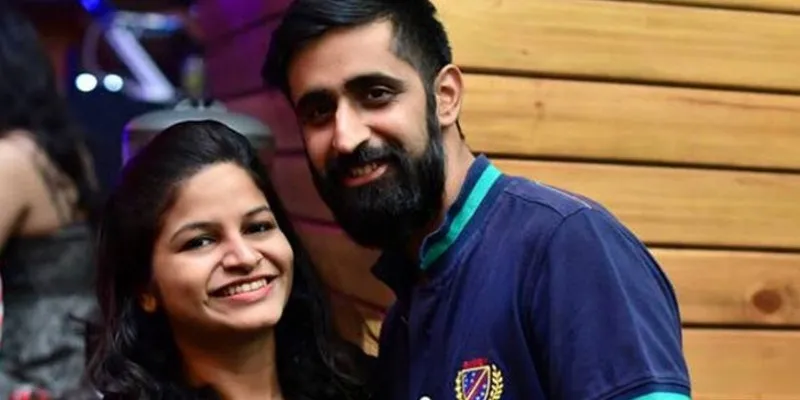
Ankeeta Deb and Viresh Madan, Founders, Rivir Shoes
The first pair of shoes Ankeeta Deb painted on were white, faded, and handed down to her by her older sister. The seventh-grader from Kolkata wore the shoes to an extra class after school, where they were noticed by her teacher, who encouraged her to put her designs on shoes.
The seeds of entrepreneurship were sown in Ankeeta, but she later opted to study engineering and an MBA. After her MBA, she met marketing graduate Viresh Madan.
Ankeeta and Viresh found common ground and realised they wanted to start a business in India's large footwear industry, which is the second biggest global producer of footwear after China.
According to a Research and Markets report, close to 75 percent of footwear production in India still comes from unorganised players. There was a big opportunity for Ankeeta to convert her passion to the profession by setting up a business around her shoe-painting concept.
In 2015, Viresh and Ankeeta invested about Rs 15 lakh from their savings to start footwear fashion tech brand, Rivir Shoes in Gurugram.
The duo quickly realised that their model was not working. They were stocking too many units when there was no assurance of sales. They were also paying labour charges when there was no work.
However, demand existed in theory. Following China and the US, India is the largest footwear consuming country.
In an attempt to solve this issue and also try and disrupt the inventory-ridden footwear industry, Ankeeta adopted a made-to-order approach.
Rivir would not maintain an inventory, and shoes would be manufactured only after an order was placed.
"Customers can place an order online and can choose an existing design or opt for a custom one. After the order is placed, we sync up with our contract manufacturers to get the product made. Designs and prints are in-house, hence, the turnaround time is less than 48 hours plus delivery," the 28-year-old explains.
At present, Rivir has three workshops – two in Agra and one in Gurugram. The company has seven full-time employees. It claims it sells between 20 and 30 pairs of shoes per day, on average, and clocks monthly sales of Rs 9 lakh to Rs 10 lakh. It estimates its sales will reach Rs 1.5 crore this year.
Sacred Salts
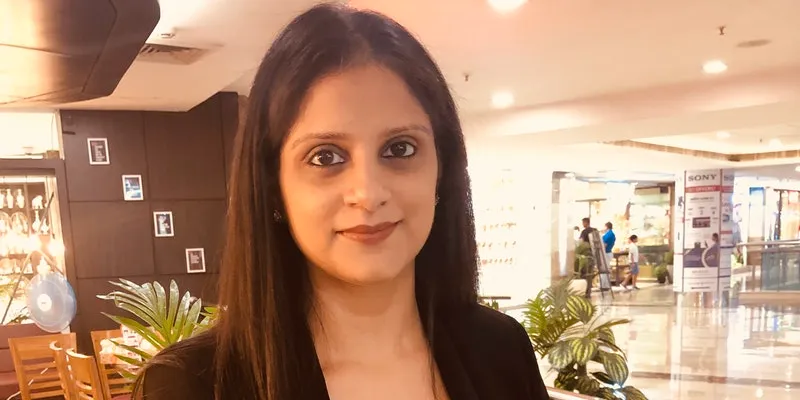
Chhavi Singh, Founder, Sacred Salts
The ancient healing ways of Ayurveda, with wisdom passed down thousands of years, are not just used to treat diseases and ailments. The system of ancient medicine is also finding much uptake in the skincare industry due to the natural properties of its ingredients.
Brands like Kama Ayurveda, Khadi, Forest Essentials, and more, are dominating the Indian organic and Ayurvedic skincare industry. And, stepping into this diverse and competitive market is Chhavi Singh, who founded a premium skincare brand, Sacred Salts in 2018 in Gurugram.
Sacred Salts is a premium skincare and accessories brand that is launched with the philosophy to bring the use of natural ingredients to the customers, that are rich in nutrients and high on luxury.
The products are made at a third-party manufacturing unit in Gurugram, and all the Ayurvedic ingredients and essential oils are purchased from Uttarakhand.
At present, Sacred Salts manufacture a total of 50 SKUs including skincare products, beauty, and bath accessories. We are also a pioneer in launching milk facewash and scrub in India. Within six months of operations, Sacred Salts closed FY19 with Rs 1 crore and 20,000 online customers.
(Edited by Suman Singh)









